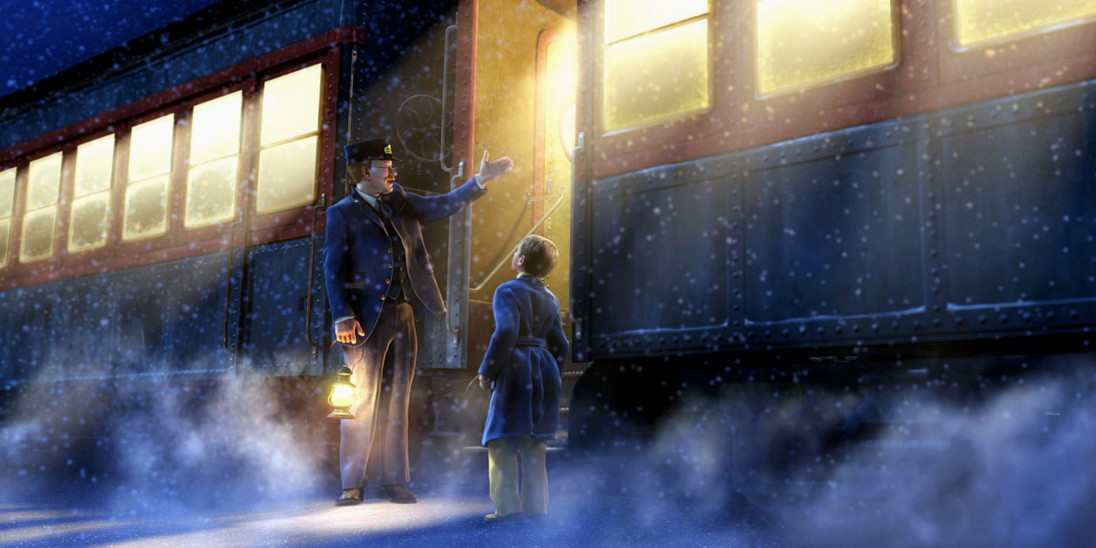"I Believe in Santa, The Father Almighty": Analysis of the Polar Express
"Because thou hast believed me, thou hast believed: blessed are they who have not seen, and yet believed." John 20:29
 |
Last week, I saw the Polar Express for the first time in its entirety. It was like being hit by a motion capture train over and over for 90 minutes. I'm not sure even if I enjoyed it or not (although the company was superb).
 |
While there were many things I found confusing and disturbing, the most striking was how similar the story was to C.S. Lewis' The Great Divorce. Both involve
- Public transportation
- A promised land of joy that some passengers didn't believe was real
- The passengers are unsure of where they are going and how they came to be on the train
- A folksy guiding spirit
- Various nameless archetypes who embody various sins
Essentially, an unnamed everyman protagonist uses public transportation as a metaphorical conduit from hell through purgatory to heaven.
Oddly enough for a Christmas movie, the Polar Express takes great pains to avoid references to Christianity. This creates a paradoxical situation where the goal is to "discover the true meaning of Christmas", where the meaning ends up being the idea of creating meaning.
However, the Polar Express is about faith! The hero is beginning to question his childhood faith in Santa (aka God), so he is taken on a journey where he is asked to exercise faith in the conductor that will lead him to salvation.
This idea corresponds with theologian James Fowler's stages of faith development. The protagonist looks to be in later childhood, probably between the ages of 10 and 12. At this stage, Fowler would suggest that children picture God to be a sort of divine superhero who watches everything, rewards the good, and punishes the bad. They likely picture him as a big white man with a big white beard who lives in a magical place in the sky... almost like...
 |
So the movie makes sense as a message for children who are beginning to question their faith... or does it? Fowler would suggest that the goal for Christians is to have faith that accepts the more mystical aspects of religion, things that may seem paradoxical. Their image of God transcends what can be contained in a human being, and their ideas of justice and mercy are more nuanced than making a list and checking it twice. Therefore, God as Santa Claus fails to really capture the depth and complexity of faith. The hero's childish faith is confirmed and having seen Santa face to face, he no longer needs to exercise faith.
Furthermore, the Polar Express allegory fails to address the central tenet of Christianity: Jesus Christ himself. Ali asked me what the role of the Conductor was in the allegorical reading of this movie; I think he represents the Holy Spirit, as he leads the protagonist to Santa/God and provides guidance and protection along the journey. As both are voiced by Tom Hanks, this could indicate that they are part of the same Trinity. But there is no Tom Hanks Christ figure! Because of this, there is no redemption for doubters and those on the naughty list.
 |
| I audibly screamed in the theater at this scene. |
Thus, if we are to see the Polar Express as a lesson on faith, it gives a rather immature and overly simplistic view. Faith should not be prompted by fear of being thrown off the train or the desire for a huge present on Christmas morning. So, given a choice, I agree more closely with the lessons taught in The Great Divorce, where we are introduced to a world where "everything is for the asking and nothing can be bought".
Wait, I didn't know TOM HANKS was in this movie!
ReplyDelete(Wonderful analysis by the way.)